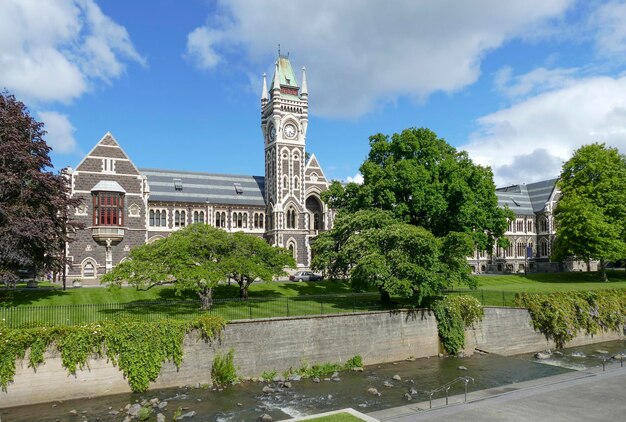Pursue an MBBS in Russia — a path that opens doors to globally recognized medical education, affordable tuition, and international exposure. However, while considering medical education abroad, students must understand key compliance factors such as WDOMS listing, NMC rules, and internship pathways. These three aspects form the foundation for ensuring your degree holds global validity and recognition in India. This article provides a complete 1000-word compliance guide covering all these essentials for Indian students planning to study MBBS in Russia.
Understanding WDOMS Listing: Ensuring Global Recognition
The World Directory of Medical Schools (WDOMS) is an authoritative global database of medical schools recognized by international health and education organizations. For Indian students, ensuring that their chosen Russian medical university is WDOMS-listed is the first and most critical step.
A WDOMS-listed university signifies:
-
The institution meets the international standards of medical education.
-
Its graduates are eligible to appear for global medical licensing exams such as USMLE (USA), PLAB (UK), and MCCQE (Canada).
-
The degree is recognized by bodies like WHO, FAIMER, and WFME.
Nearly all top Russian medical universities, including Kazan Federal University, First Moscow State Medical University, and Pirogov Russian National Research Medical University, are listed in WDOMS. Students should cross-check the listing by visiting the WDOMS official portal and searching the university name before applying.
Why WDOMS Listing Matters:
-
It assures degree authenticity for Indian students returning home.
-
It allows graduates to apply for higher studies or residency programs in other countries.
-
It confirms that the medical program aligns with global quality benchmarks.
Without WDOMS recognition, students cannot appear for FMGE/NExT or other licensing exams — leading to invalidation of their degree in India.
NMC Rules for MBBS Abroad: What Indian Students Must Follow
The National Medical Commission (NMC) governs the medical education standards for Indian students studying abroad. In November 2021, the NMC introduced new Foreign Medical Graduate (FMG) guidelines that all aspirants must comply with to ensure their MBBS degree from Russia remains valid in India.
Here’s what you must know:
1. Course Duration
According to the NMC Gazette, the MBBS course abroad must be a minimum of 54 months (4.5 years), excluding the internship period. Russian universities meet this standard as the typical course duration is 6 years, including one year of internship or practical training.
2. Internship Requirement
After completing the 5 years of theoretical and practical training, students must undergo a 1-year internship at an affiliated hospital. This internship can be completed either in Russia or in India, depending on recognition by NMC (explained later in detail).
3. Curriculum and Medium of Instruction
The course must cover the same subjects and learning outcomes as prescribed in the Indian MBBS curriculum, including Anatomy, Physiology, Pathology, Pharmacology, Medicine, Surgery, Obstetrics & Gynaecology, and Community Medicine.
The medium of instruction should be English, which is a standard practice in most top Russian universities.
4. Clinical Training Standards
The medical training should include hands-on clinical exposure in hospitals affiliated with the university. The training must be supervised by qualified medical professionals and should align with the competencies required by the NMC.
5. Licensing in the Host Country
An essential new rule states that foreign medical graduates must be eligible to practice medicine in the country where they obtain their degree. This means that after completing MBBS in Russia, students should be able to get a licensing eligibility certificate or register with the Russian Ministry of Health for internship or practice rights.
This requirement ensures that students have obtained a legitimate medical education that meets both Russian and Indian regulatory standards.
Internship Pathways After MBBS in Russia
The internship is a critical stage of medical education, bridging the gap between academic learning and practical application. For students who complete their MBBS in Russia, understanding the internship options and their compliance with NMC norms is vital.
1. Internship in Russia
Most Russian universities provide a 1-year clinical internship as part of their 6-year MBBS program. During this period, students gain practical experience in various departments such as:
-
Internal Medicine
-
Surgery
-
Paediatrics
-
Obstetrics & Gynaecology
-
Psychiatry
-
Emergency Medicine
This internship is conducted under the supervision of qualified Russian doctors and is recognized by Russian medical authorities.
If the internship certificate is officially verified and the student qualifies for a temporary or permanent license to practice in Russia, the internship is accepted by NMC under the new guidelines.
2. Internship in India After Returning
After passing the FMGE (Foreign Medical Graduate Examination) or the upcoming NExT (National Exit Test), students can also complete their internship in India. The NMC allows such students to undergo a 12-month Compulsory Rotating Medical Internship (CRMI) in India at an NMC-approved medical college or hospital.
However, note that the FMGE/NExT pass certificate must be obtained before applying for an Indian internship. This ensures that students have met the theoretical and practical competencies required for safe medical practice.
3. NExT Exam and Internship Integration
Once the NExT becomes operational, it will serve as both the licensing and screening exam for Indian and foreign medical graduates. After clearing NExT Step 1 (theory-based exam), students will undergo a 12-month internship in India before taking NExT Step 2 (practical assessment) for final registration as a doctor.
Hence, for MBBS graduates from Russia, the pathway will be:
MBBS (Russia) → Licensing Eligibility (Russia) → NExT Step 1 → Internship in India → NExT Step 2 → Permanent Registration
Verification and Documentation Process
To ensure full compliance with NMC and WDOMS norms, students should maintain the following documents:
-
WDOMS verification printout of the university
-
Admission letter and invitation from a recognized Russian university
-
Proof of English medium of instruction
-
Academic transcripts for all semesters
-
Internship completion certificate
-
Eligibility for practice certificate from the Russian medical authority
-
Apostilled or attested degree certificates
-
Passport copies and visa documentation
Proper documentation helps during FMGE/NExT registration and ensures smooth verification by Indian authorities.
Why Compliance Matters for Your Medical Career
Following WDOMS and NMC compliance isn’t just a formality — it determines whether your hard-earned MBBS degree holds weight internationally and domestically. Students who skip due diligence risk:
-
Ineligibility for FMGE/NExT
-
Non-recognition of degree by NMC
-
Denial of internship or registration in India
-
Rejection by foreign licensing boards
Thus, compliance ensures credibility, legal practice rights, and career flexibility in India and abroad.
Conclusion: Building a Secure Medical Future in Russia
Russia remains one of the most trusted destinations for Indian students pursuing MBBS abroad. With more than 30 WDOMS-listed universities, NMC-compliant programs, and structured internship pathways, it offers a safe, affordable, and globally respected route to becoming a doctor.
However, the responsibility lies with the student to verify WDOMS listing, adhere to NMC guidelines, and plan the internship strategically. Doing so ensures that the degree you earn in Russia will not only open international doors but also grant you full professional recognition in India.
By understanding and following these compliance guidelines, you safeguard your medical journey — ensuring that your dream of becoming a doctor translates into a recognized, respected, and rewarding career.



